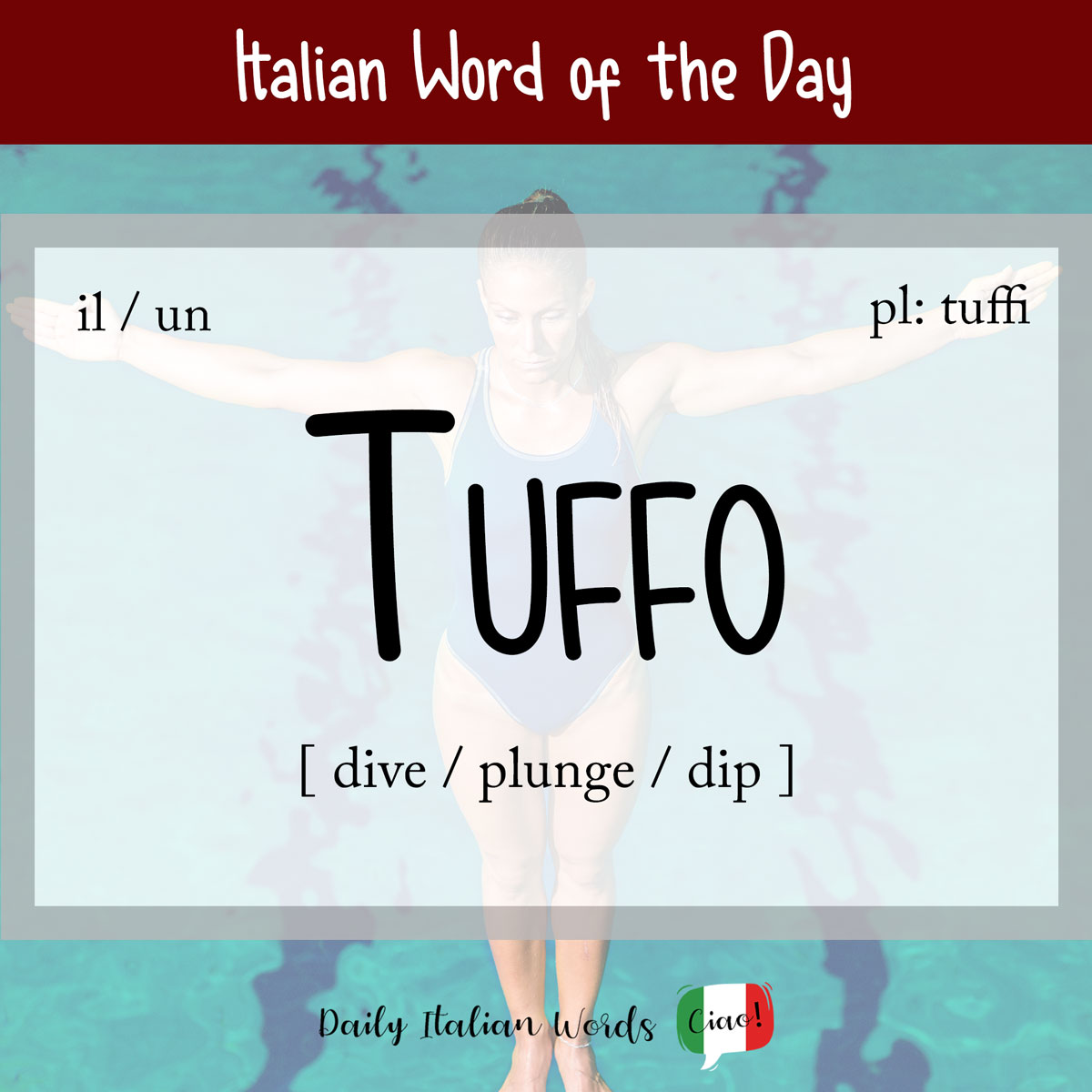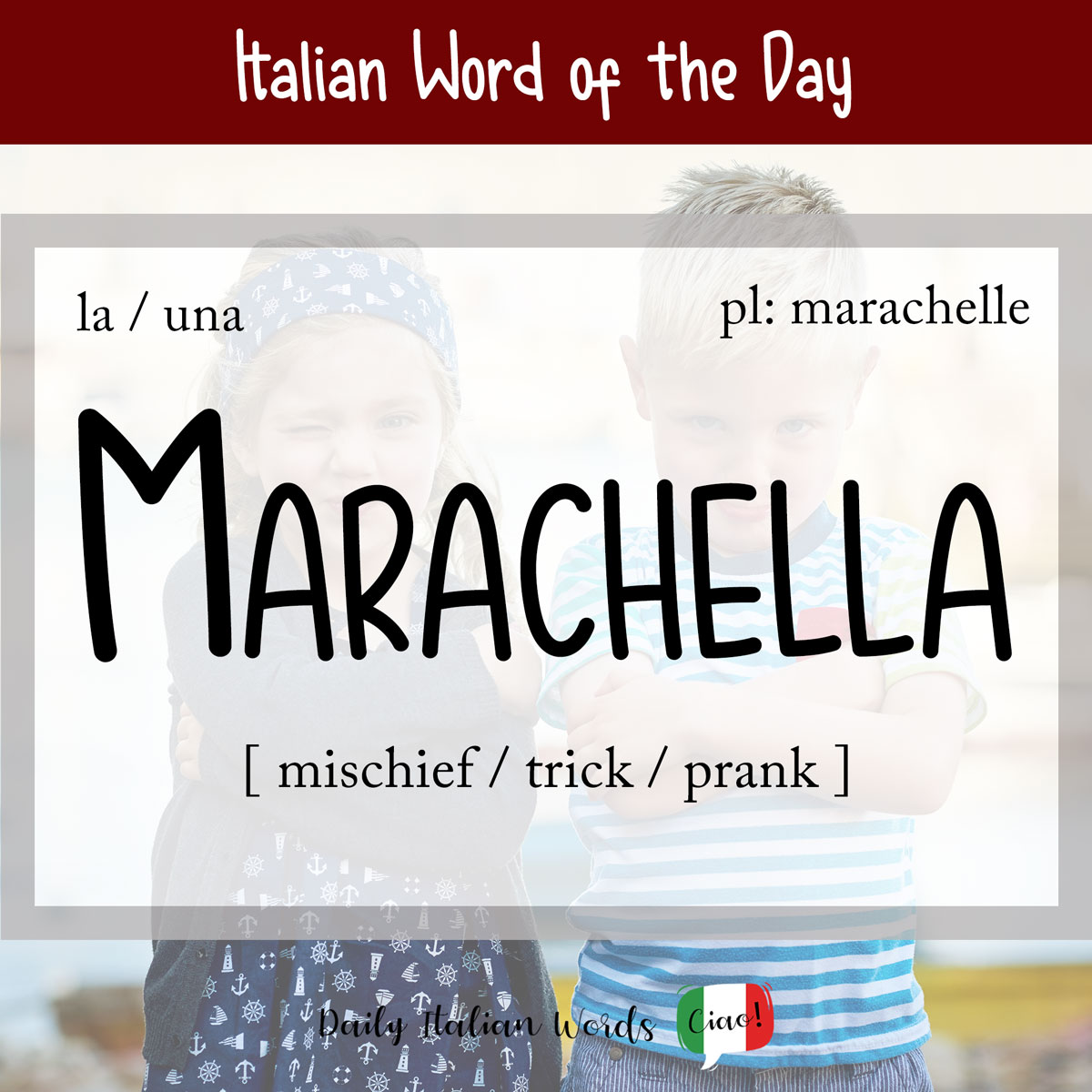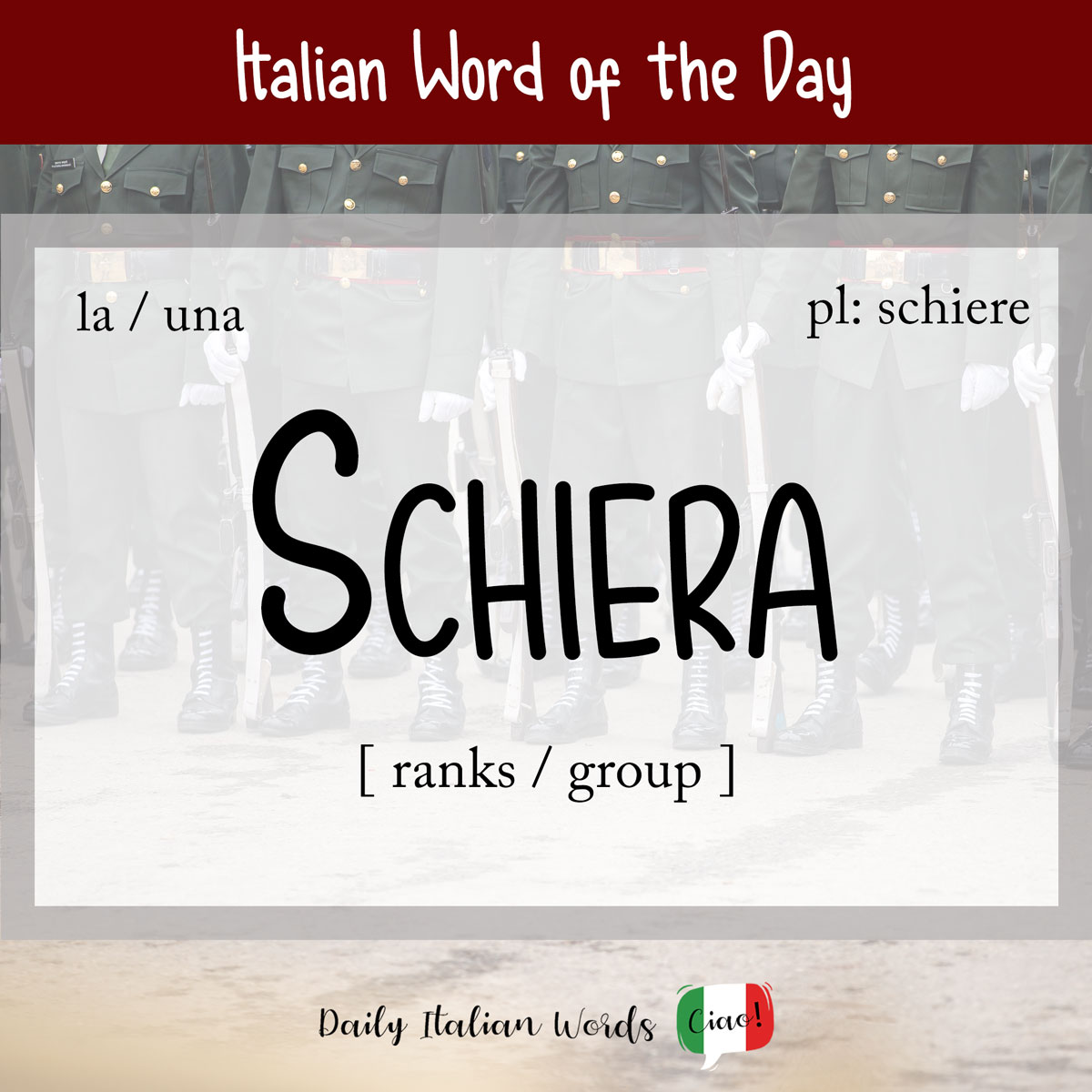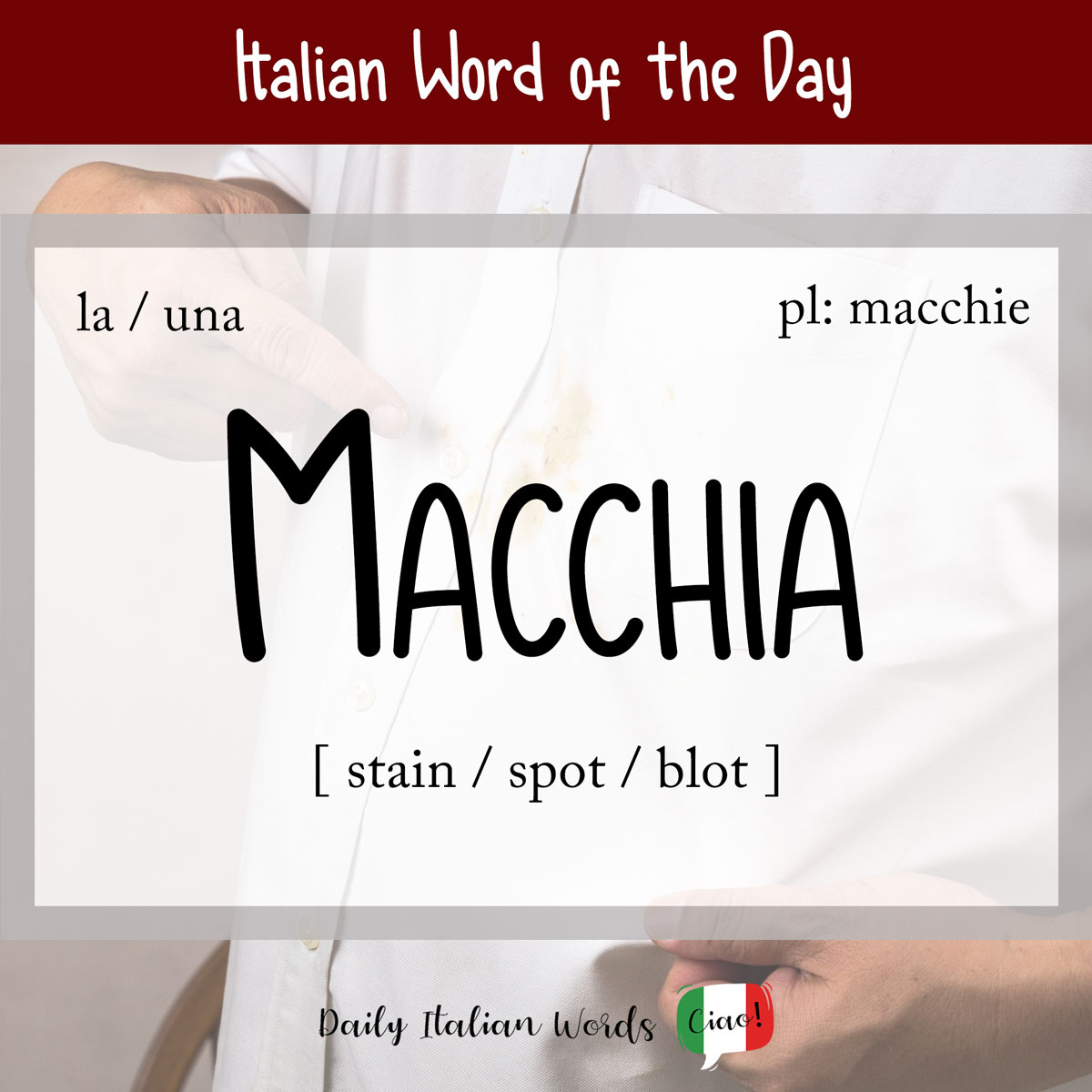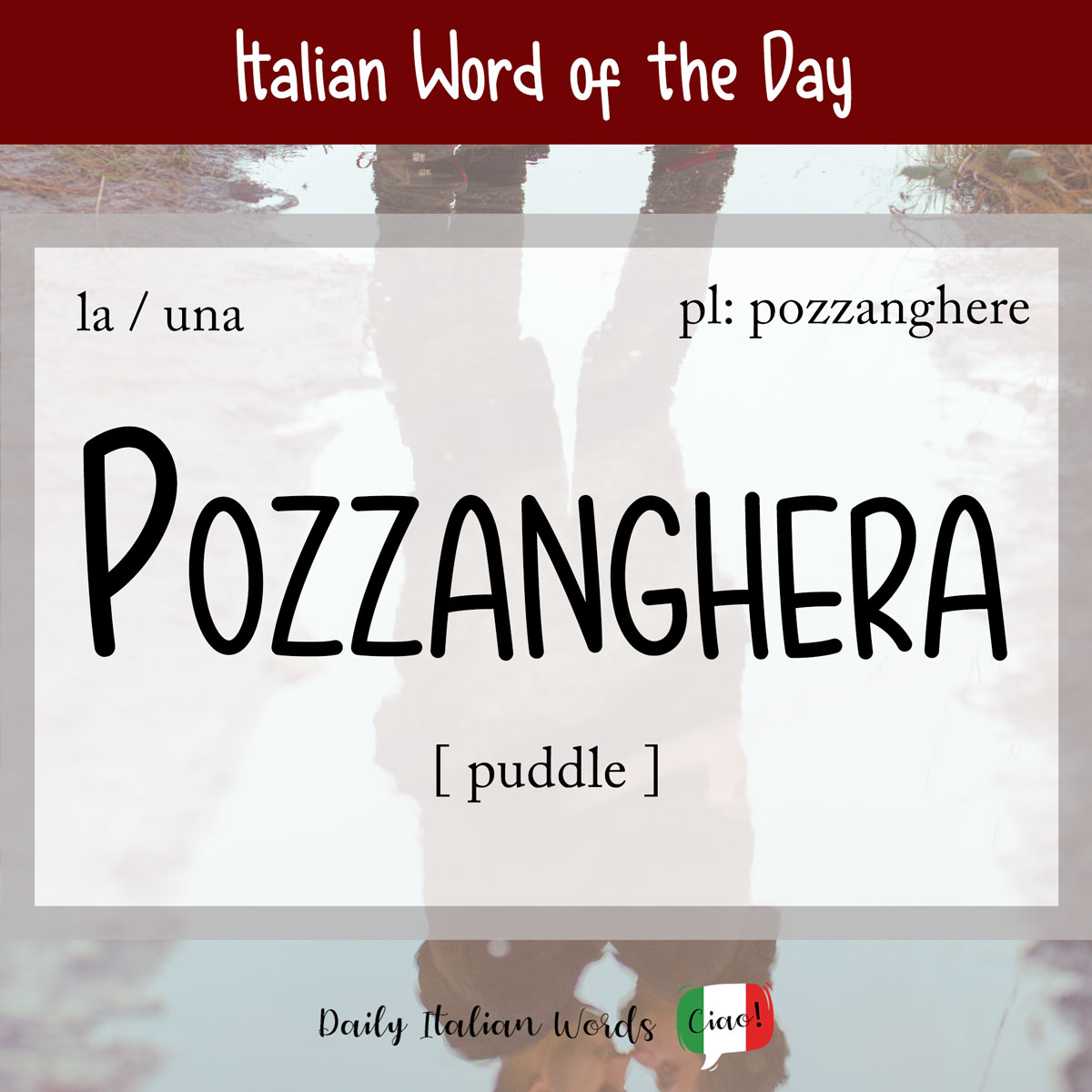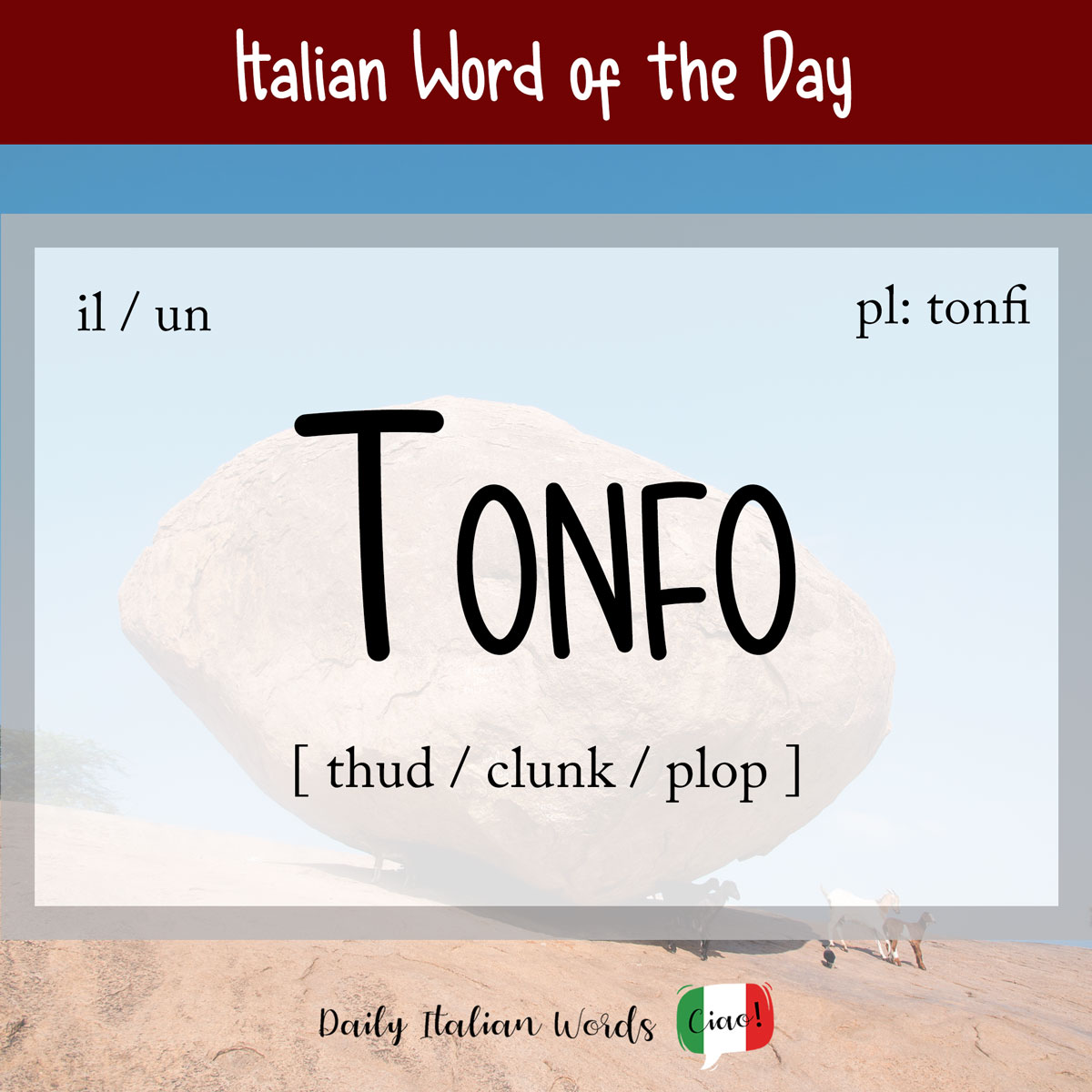Italian Word of the Day: Tuffo (dive / plunge / dip)
My son, during his swimming lessons, is happy to do anything the teacher tells him to do except dive into the water. The word for a dive or plunge is tuffo in Italian. tuffo dive / plunge / dip Tuffo is derived from the verb tuffare (to plunge / immerse), which interestingly enough, comes not …

